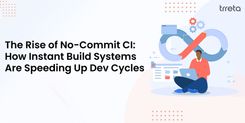Laravel 11 is here, bringing significant improvements, refined architecture, and performance enhancements. As the current Laravel version, it introduces a streamlined framework with modern coding practices, offering a better development experience.
In this article, we will explore the Laravel 11 new features, key changes, and what developers need to know about upgrading. We will also discuss the Laravel 11 release date and provide insights into the Laravel upgrades that enhance efficiency and developer productivity.
Laravel 11 Release Date and Update Policy
As per Laravel’s tradition, Laravel 11 was officially released on March 12, 2024. The Laravel core team follows Semantic Versioning, ensuring that major updates roll out once a year, typically in the first quarter.
While Laravel 11 brings exciting new changes, existing applications do not need an immediate upgrade. Laravel’s versioning policy provides ample time for migration. The previous Laravel version 10 will continue receiving bug fixes until August 6, 2024, and security patches until February 4, 2025.
For developers working on long-term projects, understanding these upgrade cycles is crucial for maintaining stability and security.
Key Features and Changes in Laravel 11
Laravel 11 introduces several enhancements designed to improve developer productivity and application performance. Let’s explore what's new in Laravel 11?.
1. Removal of Default Bootstrap Code
In Laravel 11, many default bootstrap files, such as app/Console/Kernel.php, app/Exceptions/Handler.php, and app/Http/Kernel.php, have been moved to the Laravel framework itself. This change helps reduce redundant code in projects and makes maintenance easier.
Example
If you need to override the default Handler.php file in Laravel 11, you can now explicitly create it within your application:
php artisan make: exception CustomExceptionHandler
This approach simplifies the default structure, making applications cleaner and easier to manage.
2. Revamped Routing Structure
Laravel 11 simplifies routing by eliminating the requirement for explicit route closure registration.
Example
In Laravel 10, a route definition looked like this:
Route::get('/welcome', function () {
return view('welcome');
});
With Laravel 11, the framework automatically detects closure-based routes, simplifying the routing experience.
3. New Scheduling Improvements
Task scheduling in Laravel 11 is now more flexible and efficient. The new enhancements make it easier to define and manage scheduled tasks with minimal configuration.
Example
You can now define recurring tasks with a fluent API:
Schedule::command('report:generate')->dailyAt('01:00');
This makes it more intuitive for businesses to automate routine operations.
4. Simplified Maintenance Mode
Laravel 11 introduces an improved maintenance mode that allows for more granular control when handling application downtime.
Example
To activate maintenance mode with a specific secret, you can run:
Schedule::command('report:generate')->dailyAt('01:00');
Users accessing the app with the given secret key can bypass maintenance mode, providing a smoother experience during updates.
5.Queue Interaction Testing
In older versions of Laravel, checking if a queued job was released, deleted, or failed manually was complicated. It required creating custom queue fakes and stubs. But with Laravel 11, you can easily test these actions using the withFakeQueueInteractions method. This makes testing faster and simpler for developers.
Example
<?php
use App\Jobs\ProcessPodcast;
it('may release a job with a delay', function () {
$job = (new ProcessPodcast)->withFakeQueueInteractions();
$job->handle();
$job->assertReleased(dalay: 30);
});
In Laravel development, you can check what happened to a job in the queue. If you want to see if a job was sent back into the queue, use assertReleased. To check if a job failed, use assertFailed. If you need to confirm that a job was deleted, use assertDeleted. These tools help business owners ensure their queued jobs are working correctly.
6. Enhanced Testing with Pest 3.0
Laravel 11 improves query-building performance, making database interactions more optimized.
Example
$users = DB::table('users')->where('status', 'active')->get();
With Laravel 11, query execution is now more efficient, improving response times for applications handling large datasets.
Laravel 11 vs Laravel 10: Key Differences
Here let’s understand the difference between Laravel 10 & Laravel 11.
| Feature | Laravel 10 | Laravel 11 |
| Default Bootstrap Code | Included in projects | Moved to framework |
| Route Registration | Manual closures required | Automatic detection |
| Scheduling | Standard task scheduling | Fluent API for scheduling |
| Maintenance Mode | Basic support | Secret-based access |
| Testing Framework | Pest 2.0 | Pest 3.0 |
| Query Optimization | Standard performance | Improved query handling |
These changes make Laravel upgrades smoother, ensuring businesses can scale applications more efficiently.
Final Thought
Laravel 11 brings a streamlined development experience, making it easier for businesses to manage and scale applications efficiently. With improved routing, scheduling, and query optimizations, businesses can enjoy Laravel’s latest version while benefiting from increased performance and simplicity.
If you’re still using Laravel 10 or an earlier version, now is the time to consider upgrading to Laravel 11. Stay updated with Laravel news and ensure your applications leverage the latest enhancements for better security, maintainability, and performance.
If you are a business owner unsure about upgrading to Laravel 11, you can consult a professional Laravel development company like Trreta. Their experts can review your current Laravel application, explain the new features, and help you decide whether upgrading is the right choice for your business.
(FAQs)
1. What are the main new features in Laravel 11?
Laravel 11 introduces simplified routing, improved task scheduling, optimized query performance, enhanced testing with Pest 3.0, and a new maintenance mode.
2. Should businesses upgrade to Laravel 11?
Yes, businesses should consider upgrading to Laravel 11 for better performance, cleaner architecture, and improved developer experience.
3. Does Laravel 11 remove any major features?
Laravel 11 removes redundant bootstrap code from individual projects, making the framework cleaner and reducing unnecessary complexity.
For the latest updates, follow Laravel-news and keep your applications up to date with the best Laravel upgrades!
4. Are Named Arguments Included in Laravel's Backward Compatibility Guidelines?
No, Laravel's backward compatibility guidelines do not cover named arguments. Function argument names may be changed if necessary to enhance the Laravel codebase. Therefore, when using named arguments in Laravel methods, exercise caution and be aware that parameter names may change in the future.




